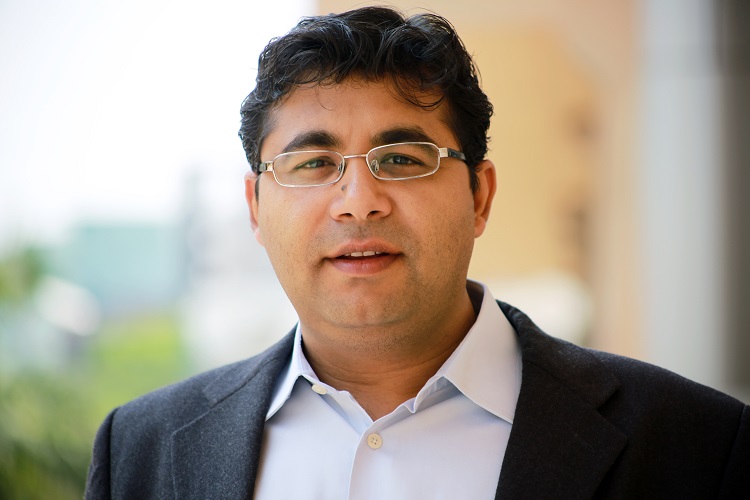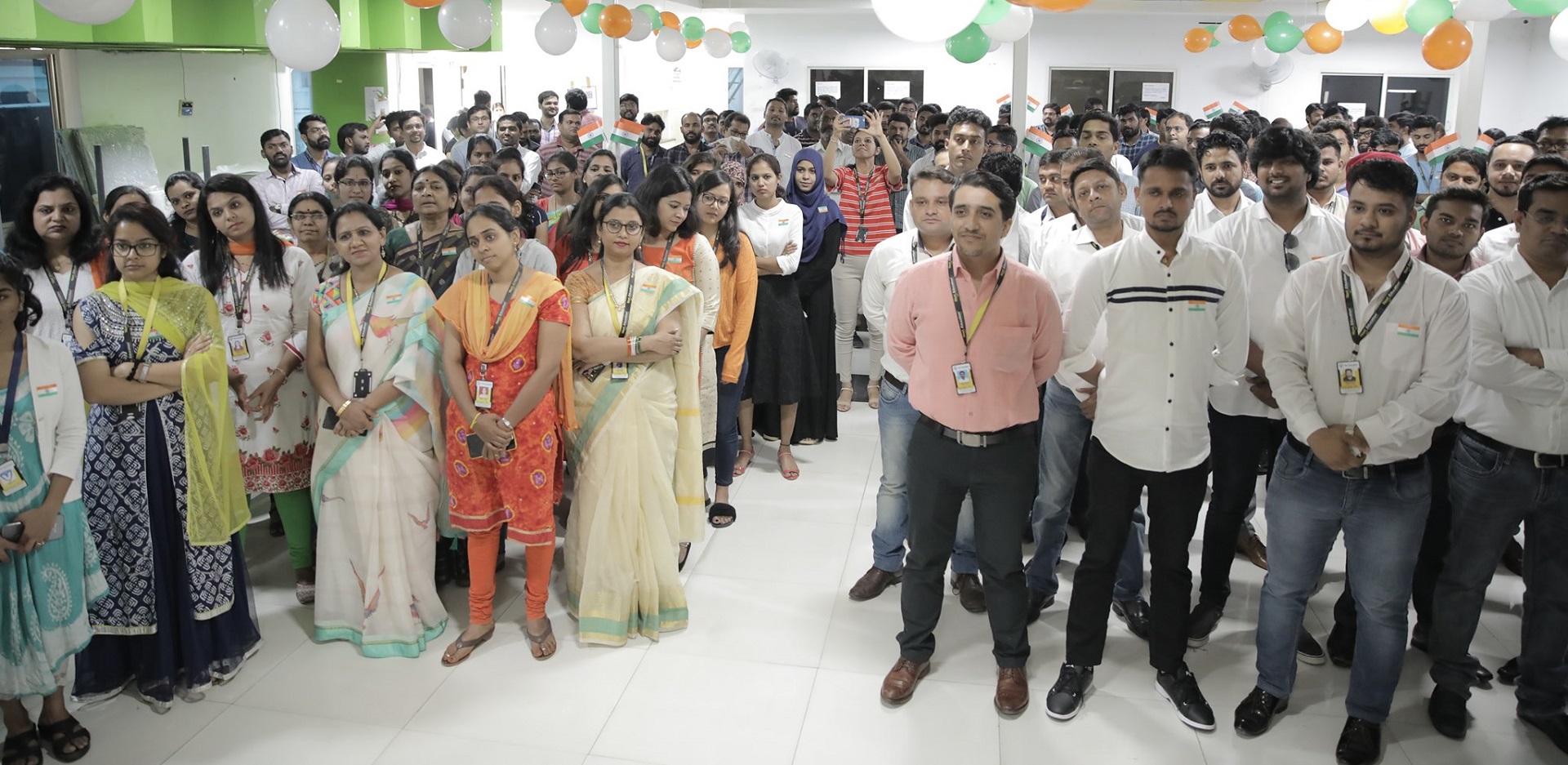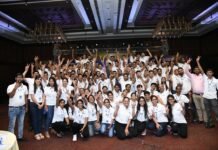
While knowledge is power and information is the path for liberation, education is the pillar of progress in any field. Today, society is on the cusp of a major change, and education for all is the key to driving it towards a positive outcome. More than a decade ago, founders of Next Education India Private Limited realised that allying with technology, which is the superpower of the 21st century, can bring this vision to reality. Therefore, with the help of new-age technological innovations, they ventured to provide a 360-degree academic and administrative support to the K–12 sector to establish the practice of sustainable learning. The company was launched in 2007. Beas Dev Ralhan and Raveendranath Kamath are the founders of Next Education India Private Limited.
About the founders
Beas Dev Ralhan and Raveendranath Kamath, tech aficionados and brothers working towards the goal of creating a social impact with technology, co-founded Next Education.
- Beas Dev Ralhan is the Chief Executive Officer (CEO) of Next Education. Ralhan received his formal education from IIT Bombay and London Business School. As the CEO of Next Education, he brings energy, inspiration and direction to the company’s vision.
- Raveendranath Kamath, the Chief Financial Officer (CFO) of Next Education, plays an integral part in financial planning, product engineering and supply chain management of the organisation. An alumnus of IIT Kharagpur, Kamath has over two decades of experience in finance and operations.
Next Education has a team of qualified and dedicated professionals with diverse skill sets, which has helped it establish itself as a known name amongst academic stakeholders.

We are publishing an interview with Mr. Beas Dev Ralhan:
Q.: What is the problem you are trying to solve?
Ans: The intervention of technology in the Indian education sector was pretty late. As the world is evolving fast, all of us need to stay updated with the global trends. For years, our country followed traditional methods of learning. Teacher-centred classroom environment, fewer hands-on-activities, and more emphasis on rote learning made the learning process less effective. To address this problem, we tried to come up with some unique solutions pertaining to education and technology that can make the teaching-learning process more effective and help learners become ready for the 21st century.
Q.: Can you share with us any insight that led you to believe that this is a big enough problem?
Ans: Both Kamath and I got the opportunity to study in IIT and were exposed to global work culture. During my days at IIT Bombay, I realised that to make an impact on modern society, one has to build companies supported by the latest technologies and utilise the power of the Internet. While we were planning to start our venture, market research made us realise that the education sector was the least impacted by technology. So, with technology as our ally, we wanted to devise innovative methods to make education accessible and affordable to all.
Q.: Tell us about the product/solution. Explain how you went about the product-market fit process.
Ans: Initially, we wanted to create an impact on the Indian education sector. We intended to tailor technology to education, make such solutions accessible for all children and ease the tasks of academic stakeholders. Back then, most academicians were unaware of the teaching methods suited for digital learning. It took us almost 1–2 years to train subject matter experts and make them proficient in designing a robust curriculum. Our R&D team did complete research on different curriculum and numerous processes to deploy technology in curriculum and activities.
In 2009, we launched our first product, LearnNext – a self-learning, home-based solution for children. The response we got for the product was overwhelming, and there was no looking back after that. The Next ecosystem has been steadily enriched with numerous solutions catering to different stakeholders of the academic sector. NextCurriculum, NextLabs, TeachNext and Next Learning Platform (NLP) are the four vital parts of the Next ecosystem, which enhance the significance of learning by incorporating hands-on learning activities and a learner-centric approach. Our flagship product, TeachNext, launched in 2010, is a milestone in terms of nationwide digitisation of classrooms. Recently, we launched NLP which is a cloud-based solution equipped with NextERP, LMS and adaptive learning, meeting all the requirements of academic and administrative stakeholders.
Q.: What is your USP?
Ans: Most of our competitors in the market are more focused on preparing students for competitive exams alone. However, we have a more organic approach to strengthening the students’ aptitude for the fundamentals of each subject. We believe this to be the best way of making them future-ready.
We are trying to create a social impact in India through our educational products. We are not here to make quick money but are instead determined to create a cycle of sustainable and long-lasting positive changes in the educational apparatus of this country. If we can make a profit eventually, we will be happy.
Q.: What were your assumptions when you entered the market and learnings since then? Who in your mind is your ideal customer? Do you have at least one of them signed up?
Ans: The market research made us understand that the education sector in India can’t evolve without technological intervention. Secondly, upskilling teachers with proper training is extremely necessary for the Indian education scenario because without ensuring their growth, it is not possible to develop the next generation.
Next Education is all about providing products and services to the academic stakeholders. We are proud to mention that we have become quite successful in terms of achieving the goal, i.e. meeting the requirements of people related to the education sector such as students, educators, principals, school administrators and parents.
Q.: What has been your biggest failure as an entrepreneur and what did you learn from it?
Ans: In our journey from an EdTech start-up to one of the most respected education solutions providers in India, we have faced several challenges but we have persevered with the help of our organic approach towards learning, which has won us several accolades with regards to learning about content, pedagogy, school administration solution and so forth, on both national and international platforms. Moreover, we believe that ‘there are no secrets to success. It is the result of preparations, challenging work, and learning from failure’. We might have faced many hurdles during our journey, but all we tried is to learn from our failures and grow better and stronger out of it.
Q.: How are you pricing the product? What is the model you are following – Free/Freemium/Premium etc.?
Ans: Well, pricing varies from product to product. The price of our products depends on various parameters and those are constantly varying as per the changing state of the market.
Talking about your second question, we design our products for different sets of audiences. So, we have both affordable and premium products for our customers.
Q.: How did you get your first customer?
Ans: Before we entered the EdTech market, there were several companies providing education solutions to schools. Next Education customised solutions more precisely that address the actual requirements of academic stakeholders. Our smart solutions were successful in gaining the attention of our prospective clients and that is how the journey began.
Q.: Is there any interesting success story?
Ans: It took less time for us to understand that the schools opting for TeachNext, our digital classroom solutions, would start via micro digitisation, i.e. opt for only a few numbers of classrooms. So, we planned the infrastructure to make sure that our solutions work properly with no errors. This helped us achieve the trust of our clients and grow for the better.
Q.: What is the big picture of your start-up? Is this product/service leading to something bigger? If so, how?
Ans: Our mission is to bring into practice the best teaching-learning methodologies that will help mould the torch-bearers of tomorrow.
The solutions we provide are vastly appreciated by our clients. Students are benefited from the solutions as well. We have clients pan India and now, we are expanding our business in the Middle East and getting a great response.
From the inception, the products we have launched turned out to be quite impactful for our target audience. However, our flagship product, TeachNext, launched in 2010, created a milestone in terms of digitising classrooms nationwide. Validated by the education industry with numerous awards, TeachNext is designed as a comprehensive academic suite to address the needs of all K–12 stakeholders. The solution, equipped with multimedia content, smart lesson plans, world-class learning tools and assessments at the end of each chapter, aims to enhance the learning experience in classrooms.
Holding a market share of 65%, TeachNext is the top-selling digital classroom solution of India.
Q.: What is the current turnover?
Ans: We have a turnover of 276 crores in FY19.
Q.: List the names of the core team members along with their designated roles.
Ans: Here are the names of the core team members:
- Beas Dev Ralhan (CEO)
- Raveendranath Kamath (CFO)
- Daljit Singh Bajwa (Director and Legal Advisor)
- Srinivasan R (President)
- Sameer Bora (Executive Vice President)
- Anand Ramaswami (Vice President, Academics)
- Arunbalaji M (Vice President, Technology)
- Vinod Raj (Creative Director)
Apart from us, Next Education has a team of 1800+ qualified and dedicated professionals with diverse skill sets.
Q.: Who do you perceive as your competition?
Ans: Next Education directly competes with companies such as Byju’s, Extramarks, Educomp, Pearson, etc. At Next, we believe in healthy competition as all of us are trying to harness the potential of the present generation of learners for a better tomorrow.
Q.: What is a goal to be accomplished in the next six months?
Ans: For us, every single day of our journey is crucial. As a part of providing solutions to schools, we are presently focussing on promoting NLP, i.e. Next Learning Platform, a cloud-based gamut of solutions that caters to all academic and administrative needs of a school.
Apart from that, we are concentrating on the Middle East market and looking forward to expanding the office in Dubai.
Q.: What message do you want to convey to fellow entrepreneurs?
Ans: Education is a slow adoption game. It is not a six or seven years’ cycle that can help you build a billion-dollar company. Hence, it cannot depend on private equity or short-term investments. It requires a lot of patience and stable capital partners, and at least fifteen to twenty years to achieve a meaningful scale.
————–
Thanks. Best wishes!




![How This Jaipur-Based Agritech Startup is Bridging the Gap with Innovative Farming Tools [ L to R ] - Shubham Bajaj and Rohit Bajaj, Co Founders - Balwaan Krishi](https://startupsuccessstories.in/wp-content/uploads/2024/10/L-to-R-Shubham-Bajaj-and-Rohit-Bajaj-Co-Founders-Balwaan-Krishi-218x150.jpeg)


